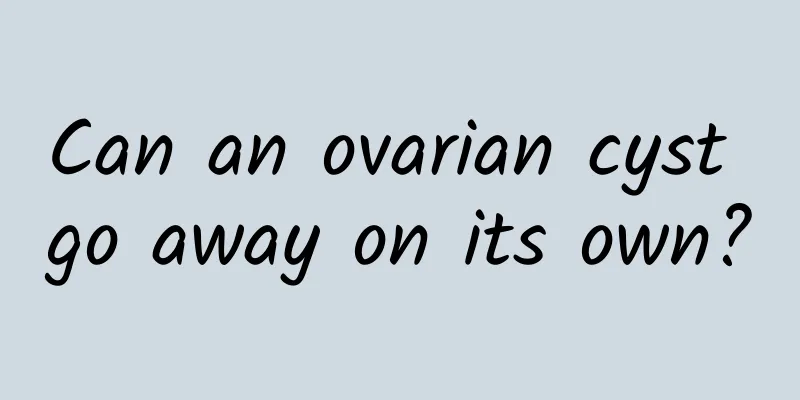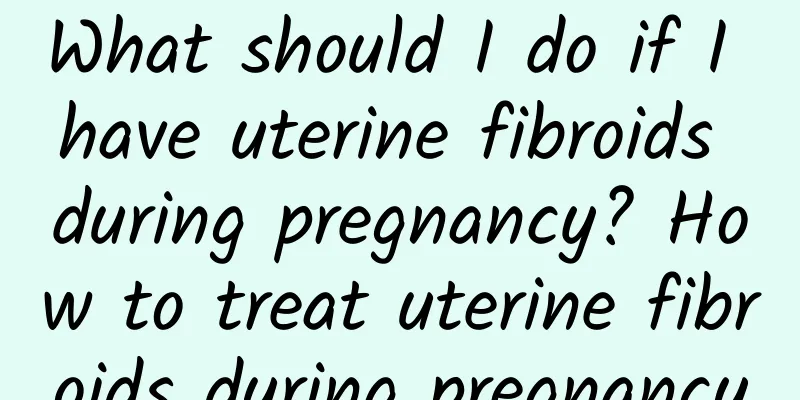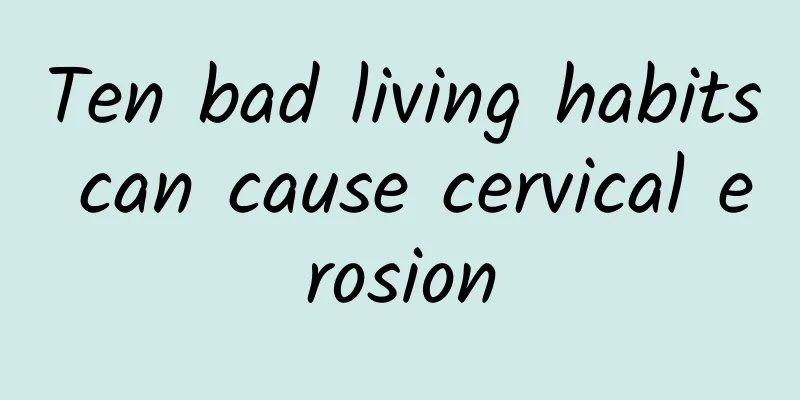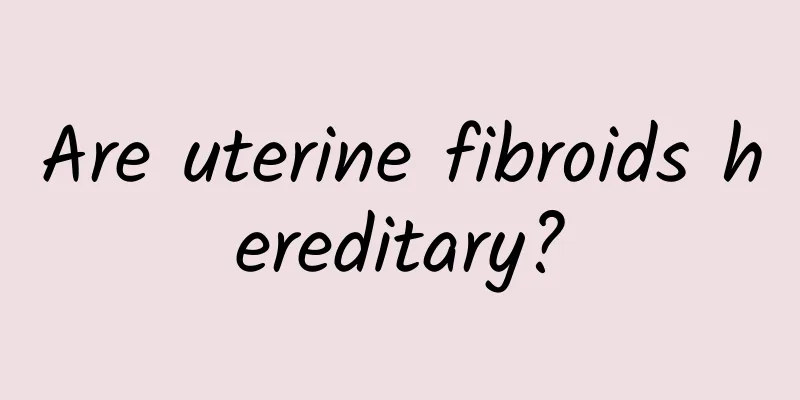Can an ovarian cyst go away on its own?

|
Can ovarian cysts go away on their own? Ovarian cysts can be divided into benign, malignant and borderline. Not all cysts require surgical treatment. Generally speaking, benign cysts such as follicular cysts are mostly less than 5 cm and about 3 cm. At this time, it should be observed for three months. If the follicular cyst shrinks or does not increase in about two months, the cyst will disappear on its own after a period of time, and no surgery is required. However, if the cyst continues to increase to more than 5 cm, surgical treatment must be performed. Patients with ovarian cysts should eat more bland, nutritious foods, correct partiality, abnormal eating habits, and are not suitable for eating irritating foods. In addition, in daily life, we should avoid high nervous tension, mental stimulation, maintain an optimistic mood, and get enough sleep. Patients with ovarian cysts should eat more foods that have anti-ovarian tumor effects, such as horseshoe crabs, seahorses, turtles, dragon ball tea, hawthorns, etc. They can take Chinese medicine ginseng, and the ginsenoside component in ginseng has been listed as a national new anti-cancer drug. Never eat irritating foods such as onions, garlic, peppers, and cinnamon. Avoid greasy, fried, moldy, and pickled foods. There are also warm and blood-moving foods such as mutton, dog meat, leeks, and peppers. We need to pay close attention to other changes in our bodies, such as sudden paroxysmal colic in the lower abdomen, gynecological examinations or B-ultrasound indicating ovarian tumor torsion, and timely surgery or conservative treatment should also be performed. If ovarian cysts are not treated for a long time, they will worsen and become malignant. In addition, the early symptoms of ovarian cysts are not obvious and are easily overlooked. They are often in the late stage and should be treated with caution. Ovarian cysts are clinically classified into functional ovarian cysts, cortical ovarian cysts, serous ovarian cysts, and mucinous ovarian cysts. The clinical symptoms are usually not obvious. If the ovarian cysts become larger, the patient may experience dull pain or swelling in the lower abdomen. At the same time, ovarian cysts can also squeeze the bladder, causing frequent urination or difficulty urinating. |
<<: What does uterine fibroids mean?
>>: What are the causes of irregular menstruation?
Recommend
No pain from exercise! Experts teach 3 exercises to prevent discomfort
As the trend of health care becomes more popular ...
What is the pain of pelvic inflammatory disease?
Pelvic inflammatory disease is a gynecological di...
What are the principles of prevention of endometrial tuberculosis?
Prevention is better than cure, especially for di...
Will you lose weight if you skip dinner? Nutritionist: Master these two tips for eating dinner and don’t be afraid of gaining weight
People who want to lose weight often rely on diet...
What are the symptoms of endometriosis?
According to clinical data, in recent years, amon...
How to prevent dysmenorrhea in women's daily life
Dysmenorrhea is a problem that many women will ex...
What are the causes of amenorrhea in women?
Amenorrhea refers to a menstrual disorder in wome...
Treatment for lochia that has not been cleared 7 days after abortion
Xiao Shao, 35 years old, has a son and lives in h...
What should I bring to the hospital for an abortion? Which hospital should I go to for an abortion?
What should I bring to the hospital for an aborti...
How many times should women's cervical erosion be treated with physical therapy? Detailed explanation of women's cervical erosion physical therapy
Female friends are very prone to cervical erosion...
Preventing postpartum obesity, yam and jujube porridge, strengthening the spleen, removing dampness and eliminating edema
Women are most afraid of losing their body shape ...
How to improve the cure rate of amenorrhea?
There are many ways to treat amenorrhea. Accordin...
Don’t be afraid of getting fat with vegetarian rice dumplings! Red quinoa adds health benefits to rice dumplings
The Dragon Boat Festival holiday is underway. In ...
Pelvic inflammatory disease in women is mainly caused by infection
In our lives, everyone should know about pelvic i...
What symptoms indicate that you have uterine fibroids?
What symptoms indicate that you have uterine fibr...









